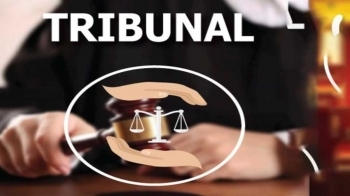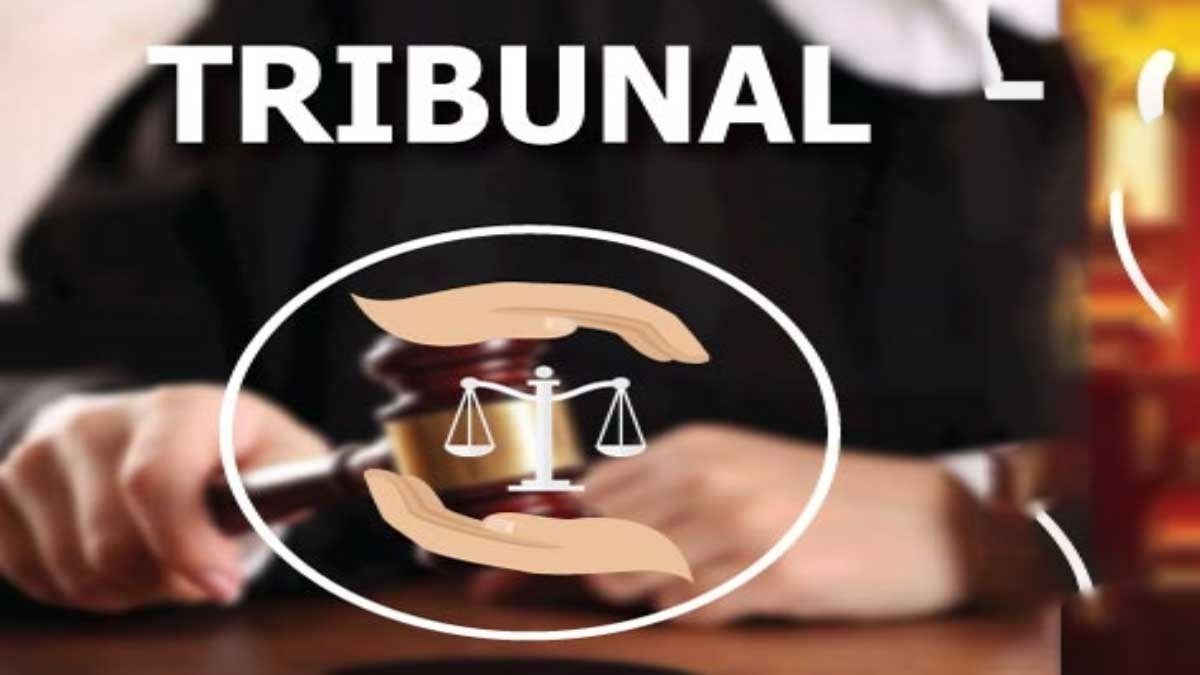
.jpg) Ramesh Menon
Ramesh Menon

A sign of good governance is always putting the right person in the right place to deliver. And, also do it at the right time and not delay it and paralyse the system. There are numerous appointments that have not been carried out in extremely crucial posts like the Deputy Speaker of the Lok Sabha or the Chairperson of the Central Vigilance Commission. Similarly, the Law Commission has no chairperson appointed. There are thousands of posts reserved for the Scheduled Castes, Scheduled Tribes, and the Other Backward Classes that have not been filled.
Why is the government pussyfooting on it? What are they scared of? No one knows. When the Supreme Court comes out with strictures, politicians in the ruling dispensation often cry about judicial over-reach. But when the government of the day does not deliver, the courts have to step in. It is a sign of poor governance if the courts have to do the job of the executive.
No Deputy Speaker
For over 800 days, India has not had a Deputy Speaker of the Lok Sabha. It is a constitutional post and by convention, it is graciously offered to any of the opposition parties. It is a convention that was followed from 1956. But, the 17th Lok Sabha has yet to have one as the ruling party apparently does not want any deputy from the opposition to depute in case the Speaker is absent. The Deputy Speaker being the presiding officer also enjoys the legislative powers of the Speaker. In the absence of the Speaker, there is a panel of nine MPs who will fill in temporarily, but they have no legislative powers.
The Constitution says: “The House of the People shall, as soon as may be, choose two members of the House to be respectively Speaker and Deputy Speaker thereof and, so often as the office of Speaker or Deputy Speaker becomes vacant, the House shall choose another member to be Speaker or Deputy Speaker, as the case may be.”
Hence it is not a mere convention that has been broken, but what is on display is a sign of arrogance of a government that has a majority in Parliament and just does not care.
Derek O’Brien, MP from the Trinamool Congress, has said that it is tantamount to flouting parliamentary norms. However, the government is not listening.
Requests by the opposition to get a Deputy Speaker appointed have fallen on deaf ears.
No Chief for Law Commission
The Law Commission is an independent body set up to ensure that the law is codified, eliminate anomalies, repeal obsolete and unnecessary enactments as well as ensure that the law is modern, simple, and cost-effective as far as possible.
You would naturally assume that this is a crucial body in the justice delivery system. The government does not think so.
The Madras High Court recently directed the government to consider amending the Constitution to make the Law Commission of India a statutory body or give it a constitutional status so that its recommendations can be carried out. “What is the use of having a Law Commission without its recommendation being acted upon?” the court asked.
The court also directed the government to appoint a chairperson and members to the Law Commission within three months. The previous term of the Chairperson and the members ended in 2018!
Without mincing words, the court said that the recommendations of the Law Commission are not acted upon by the government. We have seen time and again that when governance fails, the courts have to step in to repair the damage.
CVC yet to be Appointed
After all these talk of fighting corruption, the ruling party has been dragging its feet for many months on appointing the Central Vigilance Commissioner. This major inaction forced numerous dignitaries that included retired judges and bureaucrats, lawyers and social activists to shoot off a plea to Prime Minister Narendra Modi that an appointment must be done as the Commission is a premier vigilance body that is tasked to inquire into allegations of corruption against public servants and those referred to it by the Lokpal and whistleblowers.
“The purpose of setting up autonomous oversight bodies like the Central Vigilance Commission is defeated if appointments are not made in a timely manner. The government has effectively paralysed the Central Vigilance Commission by leaving posts of Commissioners vacant,” the letter said.
Under the CVC Act, the Commission comprises a Central Vigilance Commissioner who also acts as its Chairperson and two other Vigilance Commissioners. The last CVC Chairperson retired in June this year. It has been headless since. There is an acting Commissioner right now but there is no legal provision for that. The fact that this appointment was ignored and an ad hoc system employed, destroys the integrity of the post. The Prime Minister is the chairperson of the selection committee of the CVC.
Numerous Vacant Posts of SCs and STs
A report of the Standing Committee on Personnel and Law points out that the Railways and the Home Ministries have more than 50 percent of vacant reserved posts of OBCs, SCs and STs. This is true of around ten Central ministries. There are 17,769 posts vacant in the Railways. In the Home Ministry, the figure is 17,493. In the Finance Ministry, out of 10,921posts, as many as 7,040 are vacant. As many as 555 posts are vacant out of the 1,251 reserved posts in the Housing and Urban Development Ministry. It will be the same in ministry after ministry as these ten ministries that the Standing Committee found were so only because ten ministries out of 53 shared their data.
One of the new normal things today in India is to hide data or just refuse to part with it so that the truth will never be out.
The report pointed out that backlog vacancies were multiplying at an “exponential rate year after year”. The Committee had asked the Department of Personnel and Training to ensure that each ministry designates an officer just to see that the reserved posts are filled.
There are thousands of reserved posts not filled in the Border Security Force, Central Industrial Security Force, and many others in the Home Ministry. When unemployment is one of the most pressing issues facing the country, it is difficult to figure out the logic of why these posts have not been filled.
3In 2014, the year the Modi government first came to power, there were just 4.21 lakh posts vacant in various central ministries and departments. That works out to around 11.5% of the sanctioned posts. However, in 2018-19, the number had shot up to 9.10 lakh vacant posts which are around 22.76 percent of the sanctioned posts.
Supreme Court Steps in
It took the Supreme Court to recently strike down various provisions of the Tribunals Reforms Ordinance of 2021 to ensure that judicial appointments long pending in Tribunals that are quasi-judicial bodies are finally made after four long years. The court asked the government to notify appointments within three months of receiving the recommendation or names for appointment from the selection committees.
Tribunals play a pivotal role as they smoothen the process of justice delivery taking inputs of experts on various disputes involving taxes, service disputes, administrative matters and commercial law. But the last appointment to any of the 19 tribunals was in April 2017.
The Supreme Court has asked the government to speed up the process of appointments so that justice delivery happens swiftly.
The court pointed out that there were more than 21,000 cases pending in the National Company Law Tribunal which had just 38 members when there should have been 63.
It was the same story everywhere. Only 11 out of 34 vacancies were filled in the Armed Forces Tribunal which had over 18,000 cases waiting to be disposed of. Similarly, in the Central Administrative Tribunal listening to service matters, there were over 48,000 cases pending and it had only 36 members when it should have had 65. The Income Tax Appellate Tribunal had over 88,000 pending appeals and had just 66 members when it should have had 138.
No wonder the court remarked that the sheer volume of pendency was an indicator of the substantial judicial functions by the tribunals and therefore had to be manned by efficient and qualified judicial and technical members.
465 Vacancies of HC Judges
In the 25 High Courts in the country, there is a shortage of 465 sanctioned posts for judges. Every day, the number of pending cases rockets skywards. Presently, India has over 45 million cases pending. In the district and subordinate courts, there are around 3.9 crore cases. In the High Courts, there are 58.5 lakh cases pending and in the Supreme Court, there are over 69,000 cases.
The collegium of the Supreme Court headed by Chief Justice N V Ramana had recommended 68 names for appointment as judges. But the government has not cleared it. Numerous chief justices have time and again pointed out the inordinate delay in clearing names of judges despite the pending cases pilling up and justice delivery suffering.
If there is such a large number of vacancies in different wings of the government, governance will be the casualty. Various departments which do not have the required personnel, struggle to meet commitments and deliver on time. When there is such a serious unemployment situation, why is it that the government does not want to step in and neutralise it? Was not creating jobs one of the election promises that numerous BJP leaders made?
(The writer is an author and award-winning journalist)